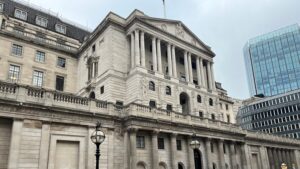Sebastian Lyon – Troy Trojan
Sebastian has been at Troy Asset Management since it’s formation in 2000, having previous worked as a manager of the GEC pension fund. His first and ultimate aim is to preserve capital. The team are therefore very cautious investors by nature and have an absolute return mindset.
Sebastian structures the portfolio by looking at the big picture to form his asset allocation and then focused on large cap stocks with strong balance sheets. He feels the horror stories come from weak balance sheets or those that continue issuing equity.
The main risk is that the fund is likely to under-perform in a strong bull market and could look rather pedestrian against more aggressive funds. However, for long-term investor seeking to steadily grow their portfolio, this shouldn’t matter. Furthermore, the philosophy of the fund, and of Mr Lyon, should protect you against the worst of any market falls.
Adrian Frost – Artemis Income
Adrian Frost has been at the helm of the Artemis Income fund since January 2002, and through his stock picking skills he has maintained the fund’s excellent track record. He has long since been an avid investor into companies that have the cash flow to sustain and grow dividends. He therefore firmly believes “investing for yield is fundamental, not fashion.”
This is based on the reasoning that the value of a stock is a reflection of what you think you’re going to get back. Adrian looks for stocks on the basis of the companies free cash flow and builds a portfolio of companies that has a higher yield and are able to grow their dividends faster than the overall market.
Julian Fosh and Anthony Cross – Liontrust Special Situations
Anthony and Julian believe that in a modern service based economy the value of the business often depends on its intellectual capital. The depth and breadth of attributes of intellectual capital give the managers varying levels of confidence in the ability for the business to sustain growth and margin over the longer term.
They look for companies which they believe have an ‘economic advantage’. That is, distinctive competitive strengths that others will struggle to replicate. These characteristics include a company’s ability to generate recurring revenue, their ability to increase prices without affecting demand for their products. Equally important are intangible assets and intellectual property such as the sense of quality and prestige associated with a brand or a patent for new technologies. When taken in conjunction with a dominant or secure market position in the UK, or exposure to faster growing international markets, companies with these qualities have the potential grow faster than their peers.
Jonathan Asante – First State Global Emerging Markets Leaders
Jonathan Asante remains concerned about the unresolved problems of the global economy and is therefore his focus is on multinational companies with an emerging markets bias. The fund performance is primarily driven by the style of the manager with some positive contribution from being able to pick the right companies. Jonathan takes a cautious approach to investing in Emerging Markets and has focused on defensive companies with strong cash flow. The fund does not tend to perform well in strongly rising markets.
Tom Dobell – M&G Recovery
Tom invests in companies and works closely with the management to help them turnaround the business. Tom is therefore looking for companies that are financially challenged or in the process or reinvention and are therefore they negatively viewed by the market, or their potential is not recognised. Given the nature of the fund investors should be ready to hold it for the medium to longer term.







